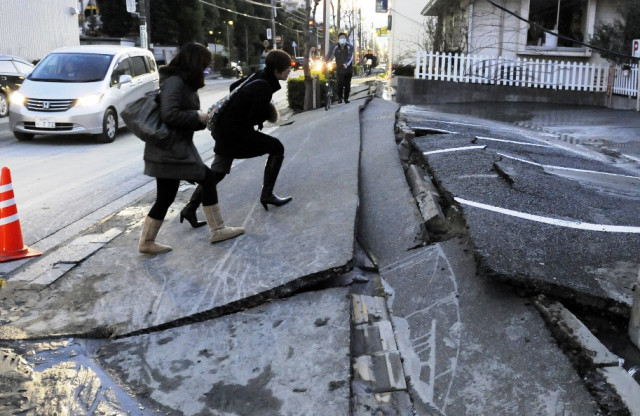Aftermath of disaster
Japan is going to live with the aftermath of a quake for a very long time to come.

To add to the horror of a situation created by the fifth worst quake of this century, is the continuing struggle to prevent a meltdown at a nuclear complex based in the northern quake zone. Fears of a major disaster forced experts to inject sea water into the core of one of three reactors in a desperate bid to lower temperatures. Some radiation leakage has been reported, but the Japanese government has been trying to allay fears that a major disaster is in the making, stating that levels of radiation in the air are so far low.
But even without this potential catastrophe, it will take the country a very long time to recover. The people who have lost family members may never get over the trauma and the process of rebuilding lives may take far longer than the mammoth task of restoring destroyed infrastructure or offering victims a return, to some degree, of normalcy in a situation where they have suddenly found everything in their lives destroyed, within a few terrible minutes.
Published in The Express Tribune, March 15th, 2011.












1724319076-0/Untitled-design-(5)1724319076-0-208x130.webp)






COMMENTS
Comments are moderated and generally will be posted if they are on-topic and not abusive.
For more information, please see our Comments FAQ